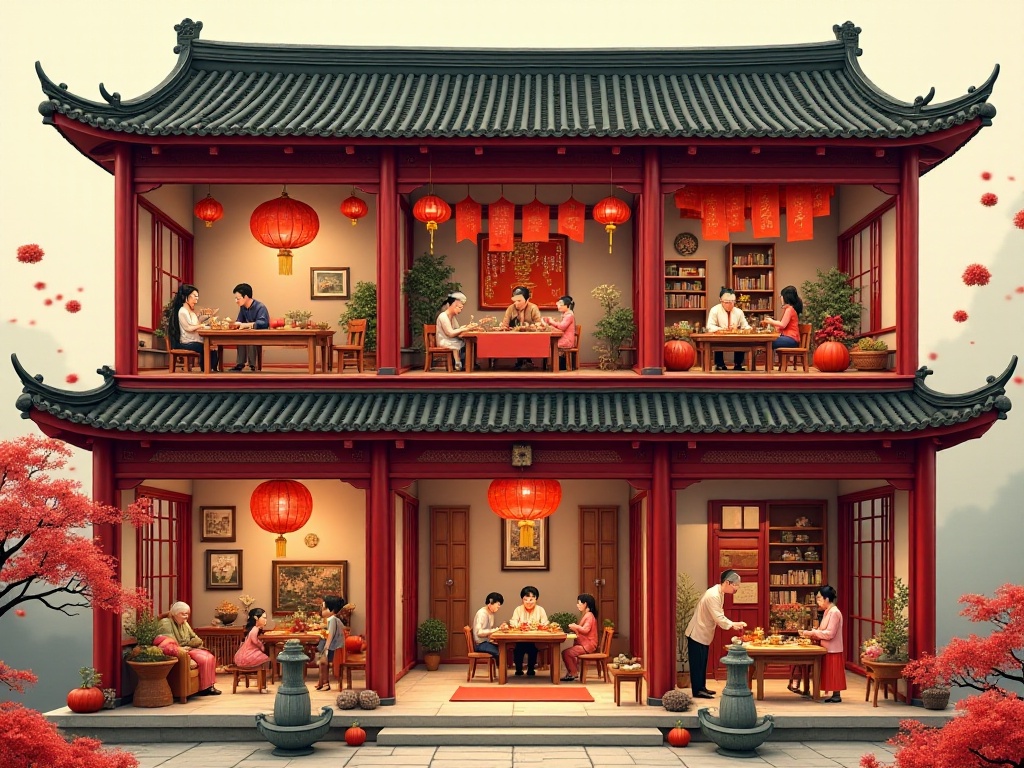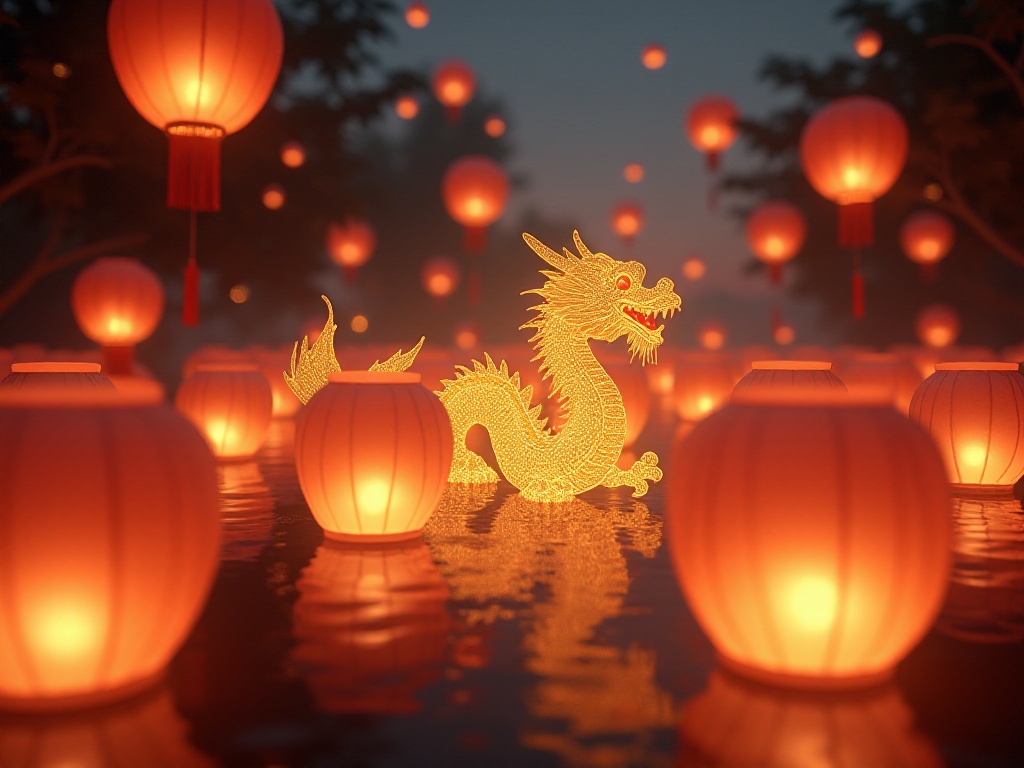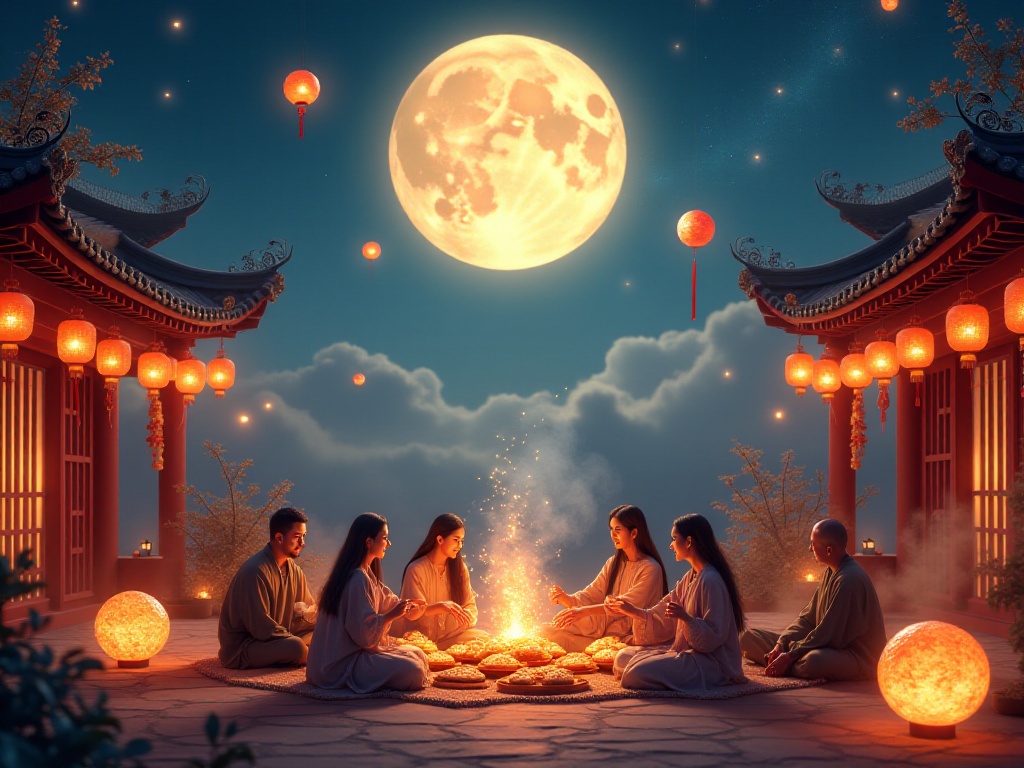Opening
Having just finished celebrating the New Year, while still immersed in the festive atmosphere, I suddenly realized this year's Spring Festival seemed a bit different from before. Have you noticed that young people around us have begun reinterpreting traditional holidays in their own way? As a native Chinese person, I've celebrated over twenty Spring Festivals throughout my life, but this year's experience was particularly profound. Every Chinese New Year, I recall the warm scenes of putting up Spring Festival couplets and making dumplings with my grandparents when I was little - the festive atmosphere seemed especially rich then. But as times change, our generation's understanding and way of celebrating Spring Festival has been quietly evolving.
New Changes
I remember when I was young, every Chinese New Year's Eve, the elders would always complain: "Look at young people nowadays, they don't understand the customs of celebrating the New Year." But actually, through observations over the past few years, I've found that young people don't disregard tradition - they're reinterpreting it in their own way. Today's young people place more emphasis on ceremony. They carefully plan their New Year's Eve dinner menu, record every moment of family reunion on their phones, and share their New Year stories on social media.
Take my cousin as an example - this year she organized a "cloud reunion dinner" on New Year's Eve. She works in Beijing while her parents are in Guangzhou. In previous years, they would just video call, but this year she planned an innovative virtual New Year's Eve dinner. She ordered the same New Year's Eve dinner ingredients online a week in advance, then cooked and chatted with her parents via video, and finally everyone ate together wearing matching family outfits - it was incredibly heartwarming.
This kind of long-distance reunion has become increasingly common in today's technologically advanced world. I've heard that some young people organize "cloud mahjong games" on New Year's Eve, playing cards with friends far away. Though separated by screens, there's no shortage of laughter. Some people also initiate "share your New Year's Eve dinner" topics on social platforms to share their reunion moments with netizens.
The other day, my friend Xiao Wang shared how his family celebrated the New Year differently this year. Not only did they have their reunion dinner on New Year's Eve, but they also specially prepared a projector and edited a short film of their family's highlights from the past year, reviewing the year's moments while eating. Watching the laughter in the video, the whole family was deeply moved. This novel approach added more warmth and memories to the traditional reunion dinner.
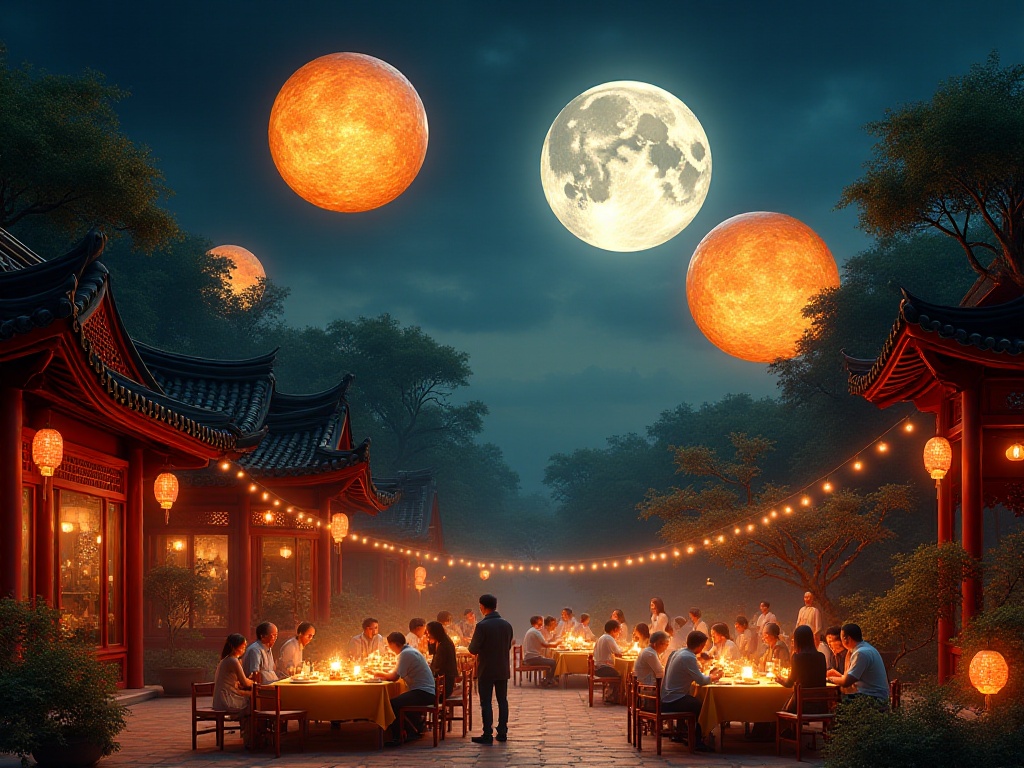
Data Speaks
According to the "2024 Spring Festival Consumption Report" released by an e-commerce platform, young people born after 1995 and 2000 accounted for 43.7% of consumption during the Spring Festival period, with "reunion-related" goods sales increasing by 156% year-on-year. This data makes me realize: young people haven't abandoned tradition, they're inheriting it in new ways.
Analyzing this report in depth, we can find some interesting details. In the New Year shopping list, besides traditional snacks, candies, and seeds, young people also choose some trendy New Year goods, such as imported snack gift boxes, creative couplet stickers, and smart electronic red packets. Interestingly, many young people choose to buy DIY New Year goods kits, like homemade tangyuan sets and handmade dumpling wrapper tools, indicating they want to experience the joy of making food, not just eating it.
In terms of service consumption, young people's Spring Festival spending also shows new characteristics. For example, New Year's Eve dinner reservations have shifted from traditional restaurant dining to semi-finished meal sets and pre-prepared dishes. Statistics show that during the 2024 Spring Festival, sales of pre-prepared dishes increased by over 200% year-on-year, reflecting that young people want to enjoy delicious New Year's Eve dinner without being bound by complicated preparation processes.
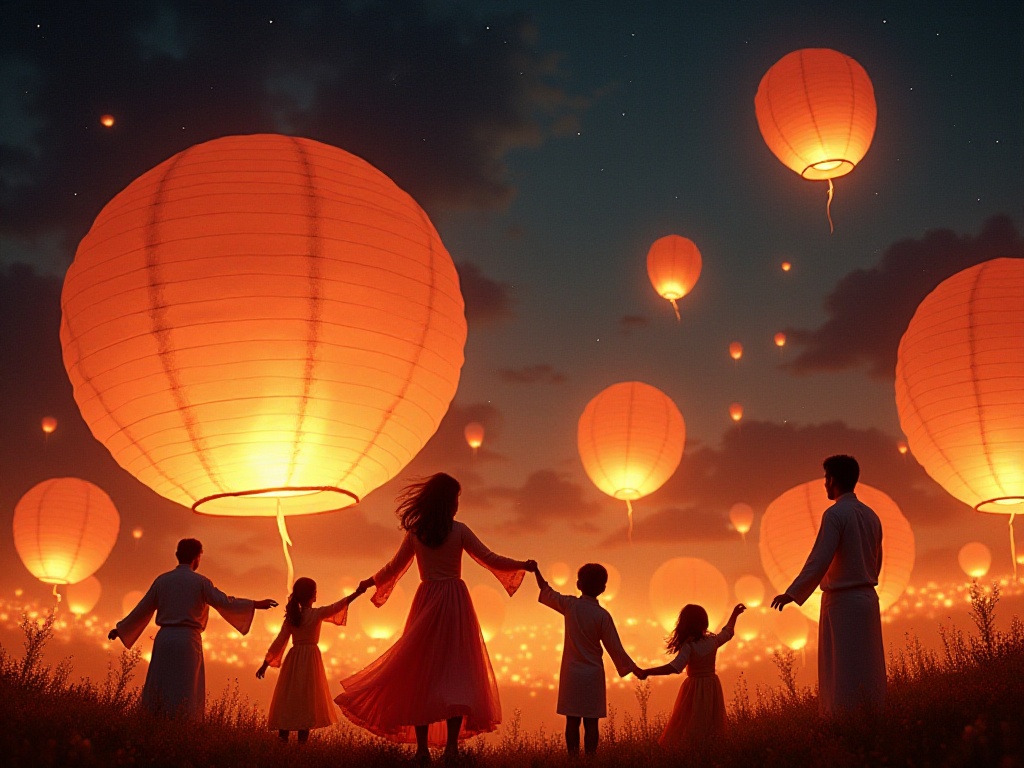
Deep Reflection
Actually, thinking carefully, young people of every era redefine their own festival culture. For instance, my grandmother's generation needed a month to prepare for the New Year, my mother's generation might have shortened it to two weeks, while our generation might only need to prepare a few days in advance. This isn't the disappearance of tradition, but keeping up with the times.
These changes reflect the transformation of lifestyle and values. In today's fast-paced modern society, young people focus more on efficiency and convenience, but this doesn't mean they don't value traditional culture. On the contrary, they're inheriting and developing traditional culture in ways more suitable for modern life.
My friend Xiao Li had deep feelings about this, saying: "I used to think the New Year was just about visiting relatives and eating and drinking, but now I realize the most important thing is the sense of ceremony in reunion and inheritance." Indeed, today's young people might not follow all the complicated customs like older generations, but they pay more attention to emotional communication and cultural inheritance during Spring Festival.
I remember chatting with a friend once, and he said: "Have you noticed that young people nowadays actually pay more attention to ceremony?" It's true. I've observed that while young people might not care much about traditional formalities, they particularly value rituals that can convey emotions. For example, some young people organize family movie marathons on New Year's Eve, with the whole family curled up on the sofa watching several classic movies; some hold family talent shows where everyone has to perform; and others organize family photography competitions to record wonderful moments during Spring Festival.
Though these new rituals differ from traditional Spring Festival customs, they carry the same beautiful meaning of family reunion and shared joy. In some ways, these new forms might resonate more with the younger generation.
New Ideas
What do young people do during Spring Festival now? I've collected some interesting examples. These examples show me that young people are not only inheriting traditional culture but constantly innovating and developing it.
Group shopping for New Year goods has transformed into online shopping, but young people organize "cloud New Year shopping groups" to share shopping lists and strategies. In these groups, people not only exchange shopping experiences but also share special New Year goods from their hometowns, sometimes even arranging to "eat New Year's Eve dinner together online." This new form of social interaction allows those away from home to feel collective warmth.
Putting up Spring Festival couplets is no longer limited to traditional couplets; many people design trendy couplets, even incorporating emoji and anime elements. I've seen people design "working people series couplets" with down-to-earth content like "Good morning, good afternoon, good night; go to work, get off work, go home." Some people draw their favorite anime characters on couplets, perfectly blending traditional culture with modern elements.
Most impressive was my friend who runs a video channel and livestreamed an "online ancestor worship" ceremony on New Year's Eve. She broadcast from her ancestral graves in her hometown, allowing family members unable to return home from across the country to participate in the ceremony through their phones. The livestream attracted over 100,000 viewers, with comments full of homesickness. This innovative form not only preserved the cultural connotation of traditional ancestor worship but allowed more people to participate.
Additionally, many young people have begun trying "reverse New Year visits." Different from the traditional custom of elders giving red packets to juniors, many young people now prepare carefully designed New Year gifts for their elders. Some create custom photo books for their grandparents, recording family moments; some sign their parents up for interest classes to help them find new hobbies in retirement; and some organize family participation in charitable activities to pass on New Year blessings through action.
In terms of entertainment, young people have shown great creativity. Some organize "cloud Spring Festival Gala," inviting distant relatives and friends to watch the Spring Festival Gala online together, commenting and interacting in real-time; some hold "New Year's Eve dinner food photography competitions," turning food sharing into artistic creation; and some plan "Spring Festival story sessions," having everyone in the family share their most memorable Spring Festival memories.

New Attitudes
Regarding these changes, I think we should maintain an open attitude. The vitality of traditional culture lies in its ability to keep up with the times and be interpreted and inherited by the younger generation in new ways. These changes aren't a departure from tradition but innovative development of tradition.
Although today's young people might not strictly follow all traditional customs like older generations, their understanding of traditional culture might be deeper. They don't simply follow rules but think about the cultural meaning behind these traditions and try to express these cultural connotations in modern ways.
For example, many young people now organize "reverse New Year visits" during Spring Festival, actively visiting elders instead of passively waiting for elders to visit. Statistics show that over 65% of those born after 1990 chose "reverse New Year visits" during the 2024 Spring Festival - isn't this a continuation of traditional virtues in the new era? This change reflects young people's new understanding of filial piety; they're no longer limited to traditional forms but express care for elders in more proactive and creative ways.
On social media, more and more young people are sharing their New Year stories. They not only record food and reunion scenes but also share their thoughts and insights about Spring Festival culture. This sharing not only spreads Spring Festival culture in cyberspace but promotes cultural exchange between different regions and families.
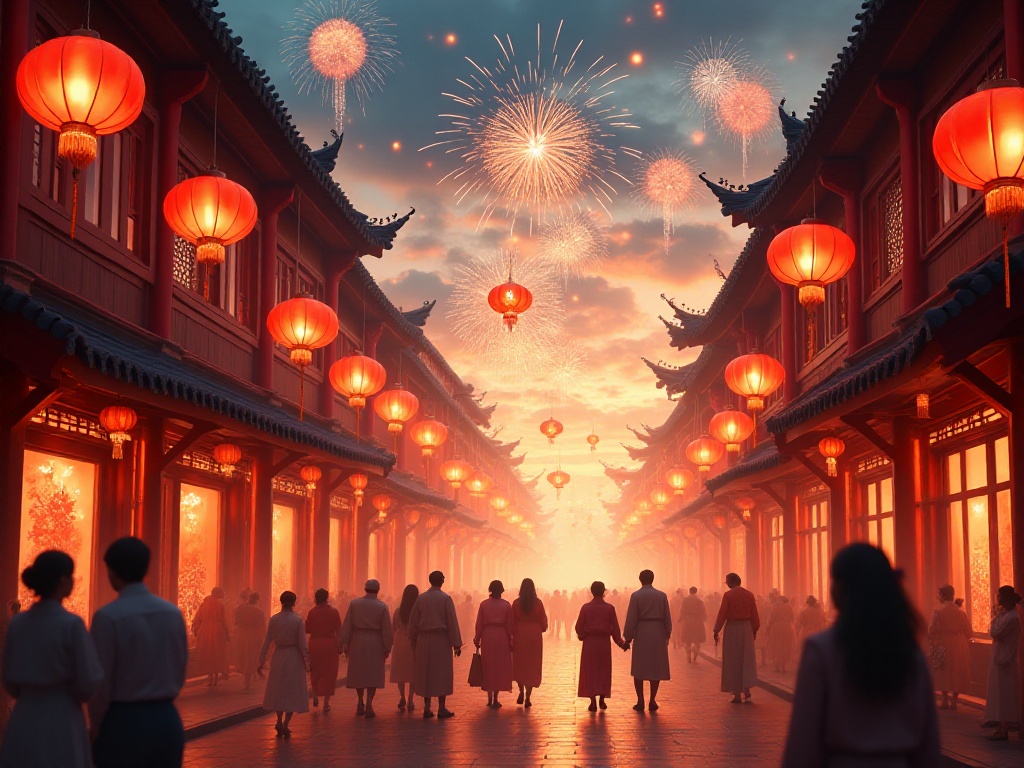
New Expectations
Looking to the future, I believe traditional festivals will definitely present more diverse aspects. Young people are using their creativity and enthusiasm to bring new vitality to traditional culture. This innovation isn't a negation of tradition but its development and elevation.
I believe that with technological development and social progress, Spring Festival culture will have more new forms of expression. Perhaps in the future we'll see VR Spring Festivals, metaverse New Year's Eve dinners, or more ways of reunion across time and space. But no matter how forms change, the cultural connotations of Spring Festival - reunion, blessings, inheritance - will never change.
In this rapidly changing era, young people are interpreting what "New Year atmosphere" means in their own way. They might no longer be limited by traditional forms, but their understanding of Spring Festival culture might be deeper than ever before. Because they're not passively accepting tradition but actively thinking and innovating.
What do you think? As a young person of the new era, how do you view traditional festivals? Welcome to share your thoughts and experiences in the comments. Perhaps your perspective will give more people new insights into traditional culture.

Conclusion
Writing to this point, I suddenly recall a saying: tradition isn't about keeping a pile of cold rules, but about warming people's hearts. Perhaps this is the true meaning of traditional festivals. When we approach tradition with an open and inclusive mindset, letting it collide with modernity, more beautiful sparks will inevitably be ignited.
In this era of change, we shouldn't treat traditional culture as unchanging dogma, but let it keep pace with the times and life. Young people interpreting tradition in their own way, bringing new vitality to Spring Festival culture, precisely proves the vitality of traditional culture. It's not a stagnant antique but a flowing cultural river, continuously enriching and developing through each generation's innovation.
Let's look forward to more young people using their own ways to make Spring Festival more interesting, warmer, and more vibrant in the future. Because only in this way can traditional culture truly be passed down and bloom more brilliantly in the new era.


